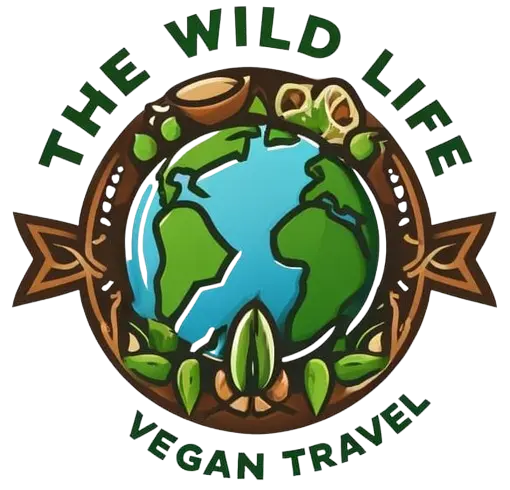Traveling through France as a vegan can seem daunting at first, but with the right phrases and knowledge, you can enjoy all the beauty and cuisine that this country has to offer. France’s culinary tradition is rich and varied, and while it traditionally includes many animal products, there is a growing awareness and adaptation toward veganism that makes traveling as a vegan in 2024 much easier.
How to say you are vegan in French
Navigating the dining scene in France begins with clarity in communication. As a vegan traveler, it’s essential to express your dietary preferences confidently. The phrase “Je suis végétalien” (I am vegan) is your key to conveying your lifestyle. For those who prefer a softer approach, “Je ne mange pas de produits d’origine animale” (I do not eat animal products) is also clear and polite.
It’s also helpful to know “Est-ce que ce plat contient des produits d’origine animale?” (Does this dish contain any animal products?) so you can inquire about specific dishes. Always remember, politeness goes a long way in French culture, so starting with a “S’il vous plaît” (please) or “Excusez-moi” (excuse me) can set a positive tone for the conversation.
For a more nuanced approach, expressing specific restrictions such as “Je ne mange pas de…” followed by “viande” (meat), “lait” (milk), “oeufs” (eggs), or “miel” (honey) clarifies which ingredients to avoid. This attention to detail can be vital to enjoying a meal that aligns with your vegan values.
Common French vegan phrases for dining out
When dining out, it’s important to be prepared with a few key French vegan dining phrases. “Avez-vous des options végétaliennes?” (Do you have vegan options?) is a great starting point. Upon receiving a menu, you might ask “Quels plats pouvez-vous préparer végétalien?” (Which dishes can you prepare vegan?) to open up the conversation about possible adaptations.
Understanding responses is equally important. Phrases like “peut être préparé végétalien” (can be prepared vegan) or “contient du beurre/de la crème” (contains butter/cream) will help you navigate the menu. If you’re unsure, don’t hesitate to ask for ingredient lists by saying “Pouvez-vous me montrer la liste des ingrédients?” (Can you show me the ingredient list?).
Lastly, showing gratitude is always appreciated. Remember to say “Merci beaucoup pour l’accommodation” (Thank you very much for the accommodation) after your meal. Positive interactions can contribute to a more vegan-friendly environment in the future.
Tips for finding vegan restaurants in France
Finding vegan-friendly restaurants in Paris and beyond has become more straightforward thanks to numerous online resources and apps. Websites like HappyCow list vegan and vegan-friendly restaurants in most French cities. Checking social media platforms and local vegan groups can also provide recommendations.
Don’t overlook the power of word-of-mouth; asking locals or fellow travelers can unearth hidden gems. Also, consider walking into a restaurant and inquiring directly. Many chefs are accommodating and may prepare something off-menu if you communicate your needs clearly.
Exploring vegan-friendly cities in France like Paris, Lyon, and Marseille can yield a delightful array of vegan eateries, from high-end dining to casual street food. Look for signs that say “cuisine végétalienne” or “options végétaliennes” as an indicator of vegan-friendly establishments.
Navigating French supermarkets as a vegan
French supermarkets can be a treasure trove for vegans with an array of plant-based products available. Look for sections labeled “bio” (organic) as they often contain vegan-friendly options. Understanding ingredient labels is crucial; “sans produits laitiers” indicates dairy-free, and “sans viande” means meatless.
Be adventurous and try local vegan products. France offers excellent plant-based cheeses, pâtés, and even “faux gras”. For fresh produce, nothing beats the local “marchés” (markets), where you can buy fruits, vegetables, and grains in bulk.
Remember to carry reusable bags as France is environmentally conscious, and plastic bags are often not freely available. This aligns with your interests in sustainability and a healthy lifestyle.
Adapting traditional French dishes to vegan
French cuisine is renowned for its flavors and techniques, and many traditional dishes can be made vegan with creativity. Ratatouille, originally a vegetarian dish, is naturally vegan. Soupe à l’oignon can be made without the traditional cheese topping or with a vegan alternative.
For dessert, try asking for “tarte aux fruits sans produits laitiers” (fruit tart without dairy products). Many pastry shops are willing to accommodate such requests, offering delicious vegan pastries and sweets.
When it comes to adapting traditional French dishes to vegan, don’t be afraid to ask for modifications. Chefs are often interested in showcasing their skills by adapting classic dishes to meet vegan standards.
Cultural attitudes towards veganism in France
Understanding cultural attitudes towards veganism in France can enrich your travel experience. While historically the French have been known for their meat and cheese-heavy diet, veganism is gaining traction, especially in urban areas.
It’s not uncommon to find vegan options at traditional French bistros now, and many non-vegan restaurants are becoming more aware of and sympathetic to vegan dietary needs. Engaging in conversations about veganism can lead to enlightening exchanges about food and culture.
When expressing your dietary preferences, do so with respect for French culinary traditions. This approach fosters positive interactions and a mutual appreciation for different lifestyles.
For a visual guide to vegan travel in France, check out this informative video:
In conclusion, embracing veganism while traveling in France is not only possible but can be a delightful experience. Arm yourself with these essential French phrases for vegan travellers to enjoy France as a vegan! Keep exploring, stay curious, and bon voyage!
